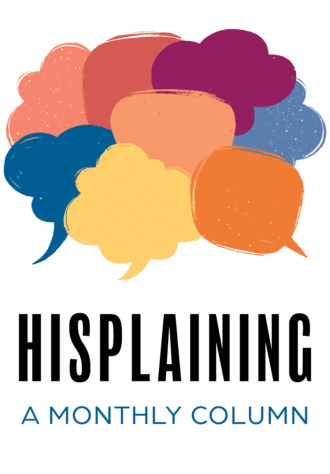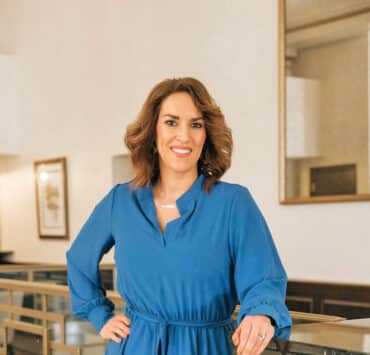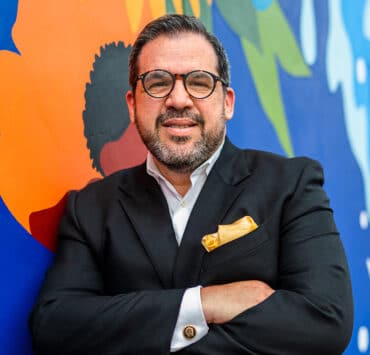|
Getting your Trinity Audio player ready...
|
In addition to serving as vice president and chief human resources officer at the University of Arizona, Helena Rodrigues is a mother of two. Her goals for her children say about as much of her own journey and her leadership style as they say about her undoubted success as a mom.
“Every school year, when I meet their new teachers, I tell them that my goal isn’t for them to be the top student in the class,” Rodrigues explains. “What I want most for them is to develop a love of learning so that they can find what they’re passionate about. As a parent, I want to open as many doors for them as I can to help them figure out what makes them happy and what brings them joy. It might be a profession, and it might not, but kids should have the chance to discover for themselves what makes life worth living.”
It might make sense, then, that Rodrigues spent a great deal of her early life struggling to find her own place in the world. A first-generation immigrant growing up just outside of Boston, the future people leader never quite felt like she fit in. And she didn’t have any professional mentors whose journeys she might be able to emulate.
The CHRO says that her even getting into college was a small miracle in a family where a post-secondary experience was hardly a regular occurrence—particularly for women. Anything after that was simply unknown.
“I know the value of mentors because for a long time I struggled to find them and because I continue to practice and pass on what I learned from them,” Rodrigues reflects. “People you can lean on and who are honest with you and hold you accountable are so important in navigating your career and in your life outside of work.”
“I know the value of mentors because for a long time I struggled to find them and because today I continue to practice and pass on what I have learned from them.”
Helena Rodrigues
Rodrigues would come to HR almost by accident. At a start-up company in Cambridge, Massachusetts, the future executive was exposed to the burgeoning diversity, equity, and inclusion space before it was embraced by the wider corporate world. The job was to locate talent that was then described as “hard to find,” like women and people of color for companies with large national and international profiles.
It wasn’t HR, but it did get Rodrigues thinking about organizational health and culture and professional development opportunities for the underrepresented. Maybe even more, it was a space where Rodrigues was able to see a budding passion of her own.
Since joining the University of Arizona over fifteen years ago, Rodrigues has served in several leadership positions, from a project director role for a National Science Foundation program to her current title as VP and CHRO. As fate would have it, she took her most senior leadership role to date just two months before the COVID-19 pandemic shut down a majority of the working world.
It wasn’t easy, she admits, but adds it was an experience that had a lasting and foundational impact on her. “I went from seeing our president and executive leadership team maybe once a week to seeing them multiple times every day,” Rodrigues explains. “There were so many decisions each day, and we were consuming extraordinary amounts of information and not always agreeing on what it meant. Having those kinds of interactions and getting to know colleagues in a crisis, as hard as it was, I’ll forever be grateful for it.”
The lasting lesson that the CHRO took from the experience is the need for authenticity, whether it be with colleagues or the broader constituencies she serves. Being upfront about her obligations as a mother was something she struggled with prior to even taking her current job.
“It’s no longer important to try and be the smartest person in the room.
Helena Rodrigues
“It took a lot of courage for me to be clear about the fact that I had school-aged children,” Rodrigues explains. “I’m a mom and wife first, and as long as I try to ‘do it all,’ they’re always going to come first. I wasn’t sure what kind of response that would get, but it was important for me to be honest.”
That didn’t mean she would back down from the high demands of her position and didn’t have equally high expectations for herself. Rodrigues explains that it was important for her to establish a tone both for herself and for her team and colleagues so that they would feel safe and comfortable talking about their own families, obligations, and struggles.
She believes self-awareness is vital for anyone in a leadership position, and it’s an area that the CHRO is forever working to perfect. Rodrigues freely admits that her current role is the most challenging to date.
“My previous strengths had been my need to be incredibly thorough and detail-oriented,” she explains. “I also wanted to develop and work things through before declaring them complete. That’s what opened doors for me and landed me on committees and task forces that increased my visibility. But those aren’t the qualities that will make me a strong leader now. My scope is so much wider, and it’s my job to open doors for my team and others, to give them opportunities and, at times, to let them struggle. It’s no longer important to try and be the smartest person in the room.”
Partners outside of the university have taken notice of Rodrigues’s commitment to her team and profession. “At TIAA, we are on a mission to retire inequality and Helena exemplifies the leadership it takes to do that,” Alison Clark, vice president of client engagement and national advocacy at TIAA. “Vulnerability is her superpower. Helena openly shares her story to support others, fearlessly advocates for herself and actively encourages others to do the same.”
Among some of her current initiatives, Rodrigues wants to find ways to increase pay across the university, particularly for lower-paid positions. This ever-competitive talent market also necessitates thinking differently about benefits offerings, learning and development opportunities, and recognition. “We need to in order to remain competitive outside of the academic space, and we have do more and do better as an organization committed to our employees,” she says.
Lastly, there is the question surrounding millennials: how do you provide more growth opportunities for an entire generation focused on speeding through titles and roles while refusing to bow to the way things have always been done?
Rodrigues says there is no easy answer to that question. “But as long as we are asking questions, actively listening, and not falling back on the way it has always been done, the answer will be in reach,” she says. Rodrigues wouldn’t know what to do with an easy challenge anyway.


